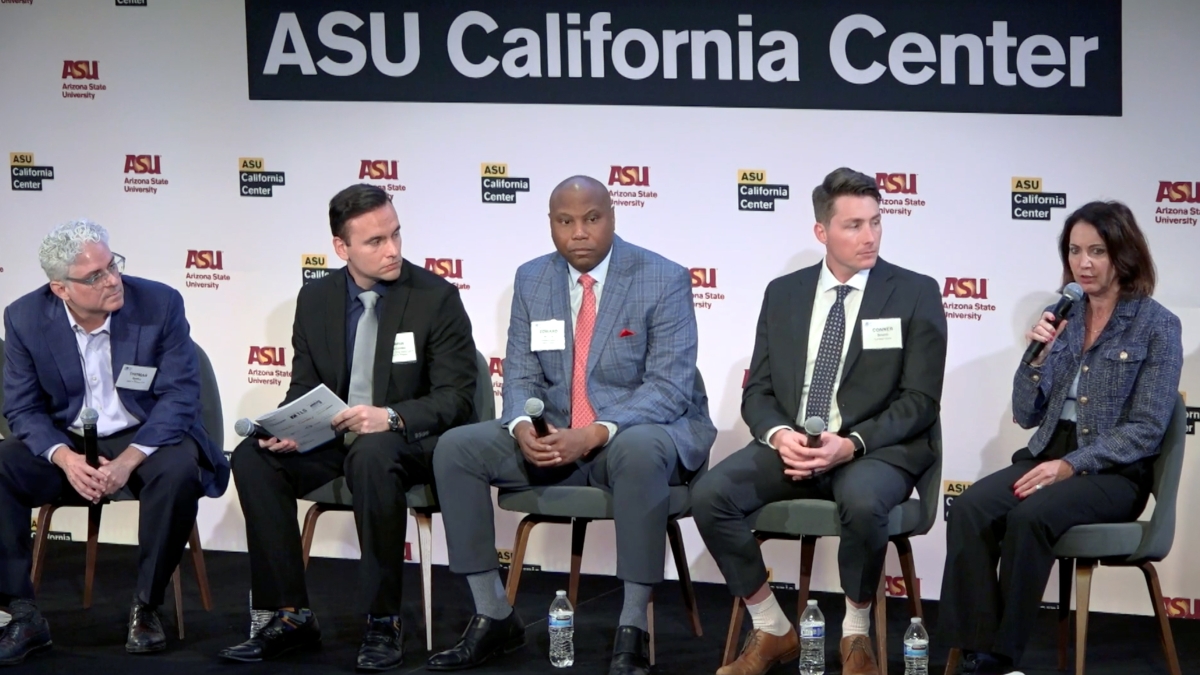ASU real estate expert questions value of cutting housing benefits in House tax bill

The House of Representatives passed a long-promised tax-code overhaul last week, characterized by President Donald Trump and Republicans as a strategic move to spur the country’s economy.
The legislation is part of an ongoing effort to reach an agreement on a sweeping tax-reform bill, which still has many hurdles to overcome. If ultimately passed, the 440-page legislation will affect corporate tax rates, health insurance, college loans, property taxes and home deductions. The latter has many economists and critics of the bill concerned that the impacts to the national and local real estate market could suppress home values and new home construction.
ASU Now spoke to Mark Stapp, director of the Center for Real Estate Theory and Practice at Arizona State University's W. P. Carey School of Business, to gain a better understand of the bill’s short- and long-term impacts. Among his observations of the bill: “It makes little sense and seems like another way to grab cash to make up the deficit.”
Mark Stapp
Question: It has been stated by several sources, including Moody’s Investor Service, that the GOP tax-reform bill will make housing investment less alluring for mainstream Americans. Do you agree? And what would be the impact of something like this on the national market?
Answer: First, I don’t think it’s fair to say “housing investment.” Home ownership by occupants may be impacted. But this depends on the overall effect of changes to the tax laws; this is about affordability, and if the overall effect is a zero sum gain or loss, then I do not think it will impact in the long run. However, if the overall effect is to reduce net income after taxes, then yes, it will.
Decision making about home ownership for occupancy is not like investment decision making. There is a significant intrinsic and emotional value associated with home ownership.
Q: What would be the impact on housing and real estate in Arizona?
A: Pretty much the same result as nationally. That said, it might have a significant impact on new home sales in the short run.
Q: One of the criticisms of the bill is limiting mortgage-interest deduction in several ways. What would be the benefit to the IRS, and what would be the disadvantage to homeowners?
A: The benefit to the federal government is more revenue because there is a smaller cap on deductions. Again, disadvantage to homeowners is less deduction and thus potentially more income tax. This all depends on the overall effect of the proposed tax changes.
Q: It has been said the bill will discourage homeowners from moving less frequently because it requires residents to stay in their properties for five years to avoid sales taxes. Is this a good or bad thing?
A: Anything that hurts mobility is not good. This does just that. Labor markets require a highly mobile workforce. It makes little sense and seems like another way to grab cash to make up the deficit. It solves no problem that I’m aware of.
Top image courtesy of Pixabay
More Law, journalism and politics

TechTainment conference explores the crossroads of law, technology, entertainment
What protections do writers, actors, producers and others have from AI? Will changing laws around name, image and likeness (NIL) eliminate less lucrative college sports programs?And what does…

How to watch an election
Every election night, adrenaline pumps through newsrooms across the country as journalists take the pulse of democracy. We gathered three veteran reporters — each of them faculty at the Walter…
Law experts, students gather to celebrate ASU Indian Legal Program
Although she's achieved much in Washington, D.C., Mikaela Bledsoe Downes’ education is bringing her closer to her intended destination — returning home to the Winnebago tribe in Nebraska with her…
